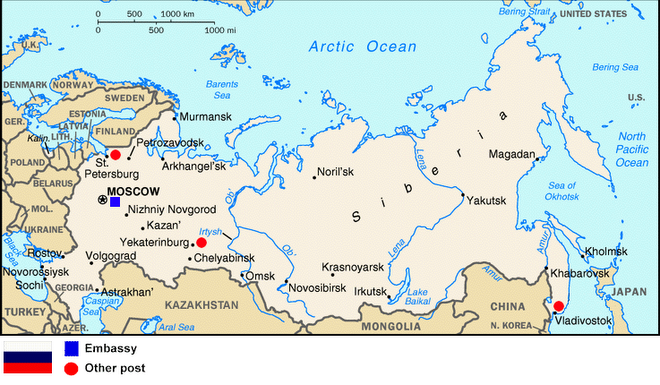
So this week I went to see Dmitri Shostakovich's opera, Lady Macbeth of Mtsensk. Now I am a big fan of Shostakovich; having known his symphonies since even before coming to Russia and then discovering the Bolshoi's new productions of his ballets has been very rewarding. His Lady Macbeth, though, was something I had missed.
 Often better known for what happened after its premiere, than for the opera itself, Lady Macbeth of Mtsensk is not an-easy-to-love opera. After its First Night in January 1936, it was famously excoriated in Pravda, with the notorious editorial: 'muddle instead of music". Shostakovitch, of course, was forever having his music banned in Russia (or, rather, just not performed) and his international reputation would probably never have risen so high were it not for his epic and time-defining 7th symphony, the Leningrad. The story of how the 7th was written and first performed during the siege of Leningrad in 1942 has entered contemporary Russian folklore. The story is interestingly well told in Solomon Volkov's engaging short book, 'Shostakovitch and Stalin'. Even if you never usually read a musicology book, read this one. You'll be pleased you did.
Often better known for what happened after its premiere, than for the opera itself, Lady Macbeth of Mtsensk is not an-easy-to-love opera. After its First Night in January 1936, it was famously excoriated in Pravda, with the notorious editorial: 'muddle instead of music". Shostakovitch, of course, was forever having his music banned in Russia (or, rather, just not performed) and his international reputation would probably never have risen so high were it not for his epic and time-defining 7th symphony, the Leningrad. The story of how the 7th was written and first performed during the siege of Leningrad in 1942 has entered contemporary Russian folklore. The story is interestingly well told in Solomon Volkov's engaging short book, 'Shostakovitch and Stalin'. Even if you never usually read a musicology book, read this one. You'll be pleased you did.So, back to The Lady... Act 1 weighs in at a tonally burdensome 2 hours and, for a work night, it was quite a strain. Indeed, Act 1, scene 1 is so irritating that, for the first time in almost three years, I gave serious thought to abandoning the performance altogether. Aside from it being just plain ignorant of me, there were three reasons why I hung on and, in the end, found it a worthwhile evening. The first was Irina Rubtsova as Ekaterina (the Lady Macbeth of Mtsensk). She is a wonderful singer and a great actress and she really gives emotional depth to what would otherwise be a cast not sure if they're in a farcical romp (the early scenes) or a horror flick.
Secondly, the mercifully less elongated Act 2 is a masterpiece of Shostakovitchian menace and soaring emotion with a very effective use of the Bolshoi chorus: Alexandra Durseneva has a great time, and we love her for it, as the tart, Sonyetka. It's a very striking production design.
So what to make of the opera overall? While I haven't asked one, I think a Shostakovitch expert would say, though, that this was the whole point of Mtsensk: a story set amongst Russian country folk, portraying the petty jealousies that then was life in Russia, culminating clumsily, yet inevitably, into something horrible (his commentary perhaps that this process was, also, unavoidably Russian). Stalin, who knew exactly what Shostakovitch was about and understood a thing or two about art-as-political-metaphor, crushed it. He wanted an heroic Soviet opera; he got something he suspected was almost seditious.

So far this season, the opera highlight for me has been the Bolshoi's production of Nabucco; and in one of the cast rotations, Irina Robtsova sings Abigaille, the wicked leading role, wonderfully-well. Rubtsova is my current Bolshoi opera favourite, although having seen Yelena Zelenskaya's Tosca a couple of weeks back, it's a pretty tough choice.
We seem to have had fewer ballet performances this season - which of course is to be expected while the Main Stage is still under restoration (reopens 2008) - and what has been performed has been conservative (seemingly endless Swan Lake and Giselle). However, a couple of weeks ago I saw the Night of American Choreography that the House has put on to celebrate the "200th anniversary of diplomatic relations between Russia and the United States". Three American single act ballets are given a twirl and it is a highly successful combination and a great evening. For me, though, the young Bolshoi cast dancing to Philip Glass's music, in Twyla Tharp's piece, In The Upper Room is just amazing. Possibly the most physically demanding piece of ballet ever choreographed (or that I have ever seen), it is amazingly exhilarating and perfectly illustrates the tonal progression of Glass's chant-like, almost religious electronic music.

There is a piece on YouTube I have found below of one of the calmer, earlier movements of the piece. I love the music. I hope you enjoy it. At the end of the performance I saw, the whole audience of the Bolshoi New Stage went wild with applause. It was huge fun and very uplifting.





No comments:
Post a Comment